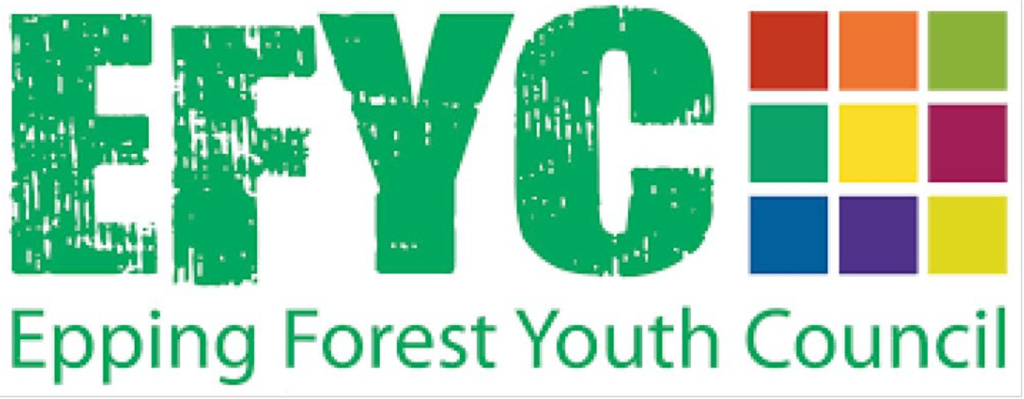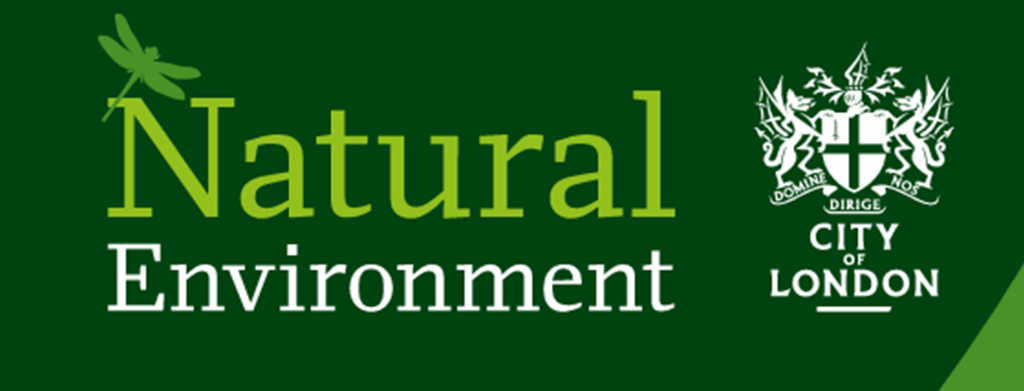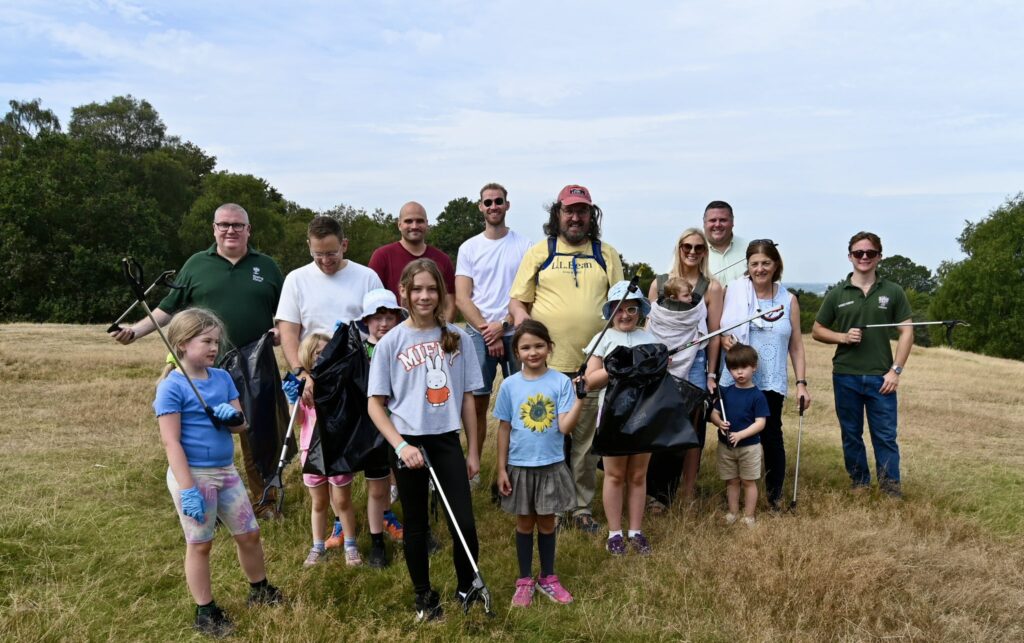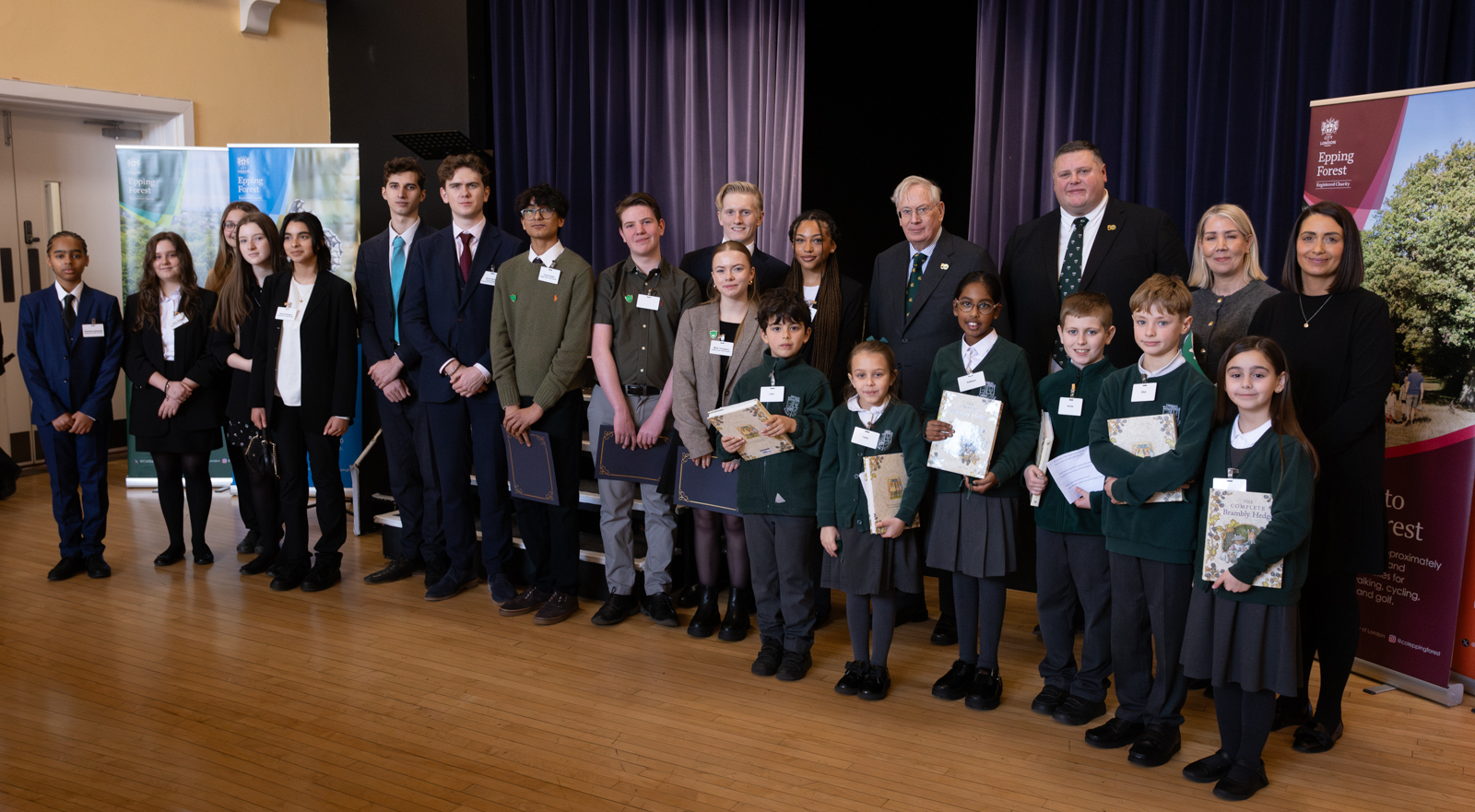Epping Forest Youth Council celebrate Duke of Gloucester | This Is Local London
Epping Forest Youth Council celebrate Duke of Gloucester | Epping Forest Guardian
Dr Neil Hudson MP attends Duke of Gloucester’s Epping Forest Ranger Golden Jubilee celebrations | Dr Neil Hudson
Youth Council celebrate HRH Duke of Gloucester’s Golden Jubilee – Epping Forest District Council
Listening to the voice of our younger stakeholders is something I feel passionately about. Throughout my life, I have found that children and young people have a unique way of presenting information back to you in a simplified manner, which is more consumable. I also find that adult stakeholders, particularly local politicians, are more likely to listen to the voice of the next generation of voters and so I was delighted to offer an opportunity for young people to talk to the them of ‘The Future of Epping Forest’ last week.
Across the City Corporation’s green spaces, we invest a lot of time and money through our outdoor education and learning team and the Epping Forest Field Centre to both provide access to green spaces for those living in deprived urban communities, to help provide formal education and qualifications at all levels, and to support local communities in how best to interact and enjoy the Forest without damaging it.

Our first set of speakers were from Thomas Willingale Primary School and Nursery. Thomas Willingale was a local man who fought to protect Epping Forest from enclosure in the 1860s. Students visited the Forest in January 2025 and wrote a poem titled: “The Enchanted Forest”, which cleverly also spells out the name, Epping Forest:
“Entering the forest a magical rainbow of colour floods our eyes
Perfectly enchanting forest of mystery
Perching in the trees are peaceful birds
I see dry leaves hanging like bats
Now crunching like cereal under our feet
Gently the wind blows through the caramel oaks
Fun playing as frozen breath turns to smoke
Over the trees I can see a bright blue sky
Rough leaves reveal little creatures under the ground
Everywhere we go mossy old trees whisper to each other
Squirrels watch the seasons change
Thomas Willingale made the forest a free place – hooray!”

Our next speakers were from Epping Forest District Council’s Youth Council, a body of 24 young people elected by their peers to give young people a voice in the community. They spoke passionately about the role the Forest plays in the community and the challenges it faces:
“We are honoured to stand before you today as young people who have grown up with Epping Forest as an important part our lives.
Our district is lucky to house this ancient and historical treasure—Epping Forest. A place of immense ecological, historical, and recreational value, it has been carefully preserved for generations, providing a sanctuary for both wildlife and people.
Epping Forest offers a diverse range of activities such as horse riding, mountain biking, fishing, and rambling, as well as sports on its outskirts, including tennis, golf, cricket, and football. It is astonishing that we live so close to our capital city, yet within 8,000 acres (32 square kilometres) of tranquil woodland—a site of special scientific interest—we can find refuge from urban life. This is a safe, peaceful, and welcoming green space for all.
However, with this gift comes great responsibility. This natural escape requires constant maintenance, care, and above all, protection. With such a vast number of visitors enjoying its facilities annually, the pressures on the forest are ever-growing. While visitors contribute to enjoy its vitality, they also bring challenges in conservation and upkeep. The forest is home to over 50,000 ancient trees—the largest collection in the UK—and it supports a wide variety of fauna, from deer and foxes to squirrels and longhorn cattle.
Thanks to the dedication of conservation volunteers, the City of London Corporation, and local authorities, much has been done to safeguard our natural heritage. Yet, we must recognize that the work is never complete. We must continue to engage, educate, and enforce measures to ensure its preservation for future generations.
Epping Forest faces significant challenges that threaten its very existence. The increasing demand for housing continues to place pressure on the Green Belt, which is supposed to help safeguard the forest. While housing is necessary, it must not come at the expense of our natural environment or our health and wellbeing. To allow destruction in the name of development would erase centuries of history and sacrifice the wellbeing of future generations. Take a moment to imagine Epping Forest without the Forest?
Another pressing issue the Forest is facing is littering and flytipping. While most visitors cherish and respect the landscape, a growing number treat it with disregard, leaving behind waste that scars its beauty and harms its delicate ecosystem. From BBQs and beer cans on summer days to dumped pumpkins and Christmas trees in the winter. Such careless actions harm wildlife and introduce pests and diseases on trees that have stood since the Anglo-Saxon era.
Existing penalties must be rigorously enforced to deter those who fail to respect the forest. Stronger action is needed to hold polluters accountable. Protection is not just a duty—it is a necessity to preserve Epping Forest for generations to come.
Yet, addressing these challenges is not enough. We must also rethink how we engage with solutions. The voice of young people has never been more crucial in safeguarding our environment. They are the future custodians of Epping Forest and the future electorate – we must ensure they are actively involved in discussions about its protection. Youth consultations offer valuable insights into the concerns and aspirations of the next generation. By working closely with youth organisations, we can educate young people and instil a lasting respect for the forest, whilst cultivating a deep commitment to conservation and volunteering.
Epping Forest is not just a green space; it is our legacy. It holds the stories of the past and the hopes of the future. It is the reason our homes don’t flood; the reason we breathe clean air and the reason we remain physically and mentally healthy. We must all play our part in safeguarding it.
The young people of the Epping Forest District ask you all to commit today to do whatever we can to preserve this irreplaceable treasure, ensuring that future generations may walk its paths, breathe its air, and find solace in its beauty, just as we have.”

Finally, the City of London Corporation’s Youth Natural Environment Board spoke about some of the international challenges the UK faces on sustainability and what the role of young people should be in helping to overcome these challenges.
“It is an honour to stand before you today at Lopping Hall. This gathering marks a significant moment—not only for us as young advocates but also for everyone here who shares a commitment to safeguarding our natural world. We are here to celebrate Epping Forest, one of London’s greatest treasures, and to reflect on the responsibility we all share in ensuring its continued vitality.
First, we would like to extend our heartfelt gratitude to His Royal Highness, the Duke of Gloucester. For 50 years as Ceremonial Ranger of Epping Forest, he has embodied dedication to environmental stewardship. This Golden Jubilee is more than a milestone—it is a powerful reminder that when we invest in protecting something precious, whether it’s a forest or our planet, it can flourish for generations.
Epping Forest is much more than an ancient woodland; it is a thriving ecosystem and an enduring symbol of what we can achieve when preservation becomes a shared priority. Spanning nearly 6,000 acres and home to over 550 protected species, this forest is a biodiversity hotspot. Its trees absorb approximately 50,000 tonnes of carbon dioxide annually—helping to combat climate change—and it provides £64.4 million in public benefits each year through recreation, improved air quality, and flood mitigation. These aren’t just numbers; they represent real value for every person here / in this room and beyond.
But Epping Forest’s significance extends far beyond London. Globally, forests act as Earth’s lungs—absorbing carbon dioxide, producing oxygen, and sustaining life. Yet every year, the world loses approximately 10 million hectares of forest due to deforestation—an area roughly the size of Portugal. In this context, Epping Forest stands as a beacon of hope: proof that with care and collaboration, we can protect these vital ecosystems even in urban settings.
To the students here today: Epping Forest isn’t just part of your city—it’s part of your future. This forest already serves as an outdoor classroom for thousands of young people each year through its educational programs and facilities. It teaches us how nature works in harmony and shows us how small actions can create big ripples. By planting wildflowers to support pollinators or organizing litter clean-ups with your friends or family, you can play an active role in preserving this incredible space. These aren’t just small actions—they’re seeds of change.
To our leaders and stakeholders: Epping Forest demonstrates what happens when we prioritize nature in our policies and investments. The tangible benefits—cleaner air, thriving wildlife habitats, flood prevention—are clear examples of how environmental stewardship delivers returns not just for today but for generations to come. As we face global challenges like climate change and biodiversity loss, let us use this forest as a model for what is possible when communities work together with purpose.
Today also marks an exciting milestone—the establishment of the Youth Natural Environment Board (YNEB). We founded this board with one clear vision: to give young people across London a voice in shaping environmental policies that will define their future. The YNEB isn’t just about raising awareness—it’s about taking action. We aim to collaborate on sustainability projects across the City Corporation’s open spaces while contributing innovative ideas that can help address complex challenges.
Already, we are working to identify opportunities where young people can lead—from proposing biodiversity initiatives within schools to supporting rewilding projects across urban green spaces. But this is just the beginning. With your support—whether you’re an 8-year-old student or a seasoned policymaker—we can amplify these efforts and create lasting change.
As we look ahead, let us remember that Epping Forest teaches us an essential truth: when we care for nature, it gives back abundantly—not just in cleaner air or thriving wildlife but in resilience and hope for a better future. This forest has stood for thousands of years because people have cared enough to protect it—and now it’s our turn. So today, let’s celebrate what has been achieved while committing ourselves to do even more—for Epping Forest, the City of London, and our planet.”
In addition to the really passionate presentations above, which were made to local MPs, Deputy Lieutenants, Councillors from the City of London, Epping Forest District Council, Essex County Council, Loughton Town Council, volunteers and staff at Epping Forest, we have also expanded our volunteering activities.
Our refreshed volunteer guide now also includes opportunities for children, young families and young adults to get involved in dedicated sessions, particularly over the school holidays. You can also now follow Epping Forest on Eventbrite and register for volunteering activities online here
My thanks to all of the young people and their parents and teachers / youth leaders for their interest and engagement. It’s wonderful to know that Epping Forest is also growing it’s future Conservators!

